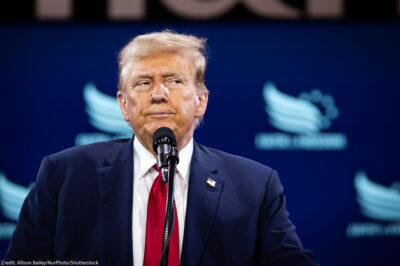Trumbo, a documentary film released today, tells the story of blacklisted screenwriter Dalton Trumbo’s courage in resolutely refusing to name names before the House Un-American Activities Committee in the darkest days of the anti-Communist witch hunts of the 1940s and 50s. The film has great relevance for today’s troubled times, and serves as a powerful reminder of why principles matter and how the failure to abide by them can result in lasting damage.
Dalton Trumbo was one of the most celebrated screenwriters of his day. As one of the “Hollywood 10,” he refused to testify before the House Un-American Activities Committee in 1947. For this, he was sentenced to prison and along with hundreds of other less famous workers in his industry was banned from employment in Hollywood for more than a decade.
The film is directed by Peter Askin and written by Trumbo’s son, Christopher Trumbo. Askin cast a set of leading film stars (Joan Allen, Michael Douglas, David Strathairn, Nathan Lane, Donald Sutherland and more) — to read from dozens of Trumbo’s remarkable private letters. He uses wonderful archival film clips and recent interviews to weave together a powerful tale and an important lesson from the McCarthy period.
The ACLU is grateful to be chosen as a beneficiary of a percentage of the proceeds of the film. It is a very generous gift on the part of the filmmakers, but I could only think that the award is being bestowed to a group whose record is “most improved.”
For in those troubled times, the ACLU was often much too timid, and at worst, conflicted and counterproductive. The debate within the ACLU in many ways mirrored the treacherous debate in Hollywood. Leading forces within the organization insisted that the protection of “national security” would provide the greatest protection for civil liberties. Although the ACLU helped to defend the Hollywood 10, the organization was still anxious to eschew any label as a “communist front” and even established an internal “loyalty oath,” a tool that some ACLU leaders believed would bolster the organization’s credibility and therefore allow it to be an even more effective defender of civil liberties.
It was a Faustian bargain. In hindsight, we know that it weakened our defense of the First Amendment at that critical time, and diminished the organization’s early legitimacy. It also created great dissent among some of the fledgling new ACLU affiliates. Fortunately, it did serve as a bitter lesson that helped forge the organization’s future role as an unrelenting advocate of civil liberties.
Fast forward through the next 50 years, and no one would suggest that the ACLU has been too timid or compromising. Especially during the past seven years as we have witnessed perhaps the greatest assault ever on civil liberties, the ACLU has responded with great clarity to White House threats and actions to limit civil liberties in the name of national security. The ACLU has not only risen to the challenge, but we have boldly fought back on every front during this similar period.
Perhaps no action has been clearer than the recent establishment of the John Adams Project, which provides direct representation to detainees facing prosecution at Guantánamo because of our grave concern that the military commissions process is an affront to justice. The ACLU believes that the military commission’s authorization of the use of coerced evidence possibly derived from torture, secret evidence, and hearsay is unconstitutional and counter to our constitutional traditions. This abuse of power requires our extraordinary leadership and effort. Clearly we have cast off the misgivings of the 1950s that kept less popular clients at bay.
Dalton Trumbo paid a very high price for adhering to his principles. The new film portrays well the havoc that was wreaked upon him, his friends and his family. It also shows how few were willing to stand with him during this perilous time and the bitter legacy when liberty is lost.
The film also underscores the vital role that the arts play in providing the narrative that brings these important principles to life. It is quite a moving experience to see some of today’s most celebrated actors read the stirring commentary of one of our most accomplished and persecuted writers.
In recognition of the importance of this platform, the ACLU has launched a new program, “Rights/Camera/Action,” which uses the arts and popular culture as a forum for civil liberties discussion with artists and entertainers to encourage deeper conversations that tap into our core civil liberties values.
Today as the ACLU marks its 88th year, it is a much wiser and stronger organization. We are proud and also deeply humbled — to be recognized by the makers of the movie Trumbo with their support of our essential work.



